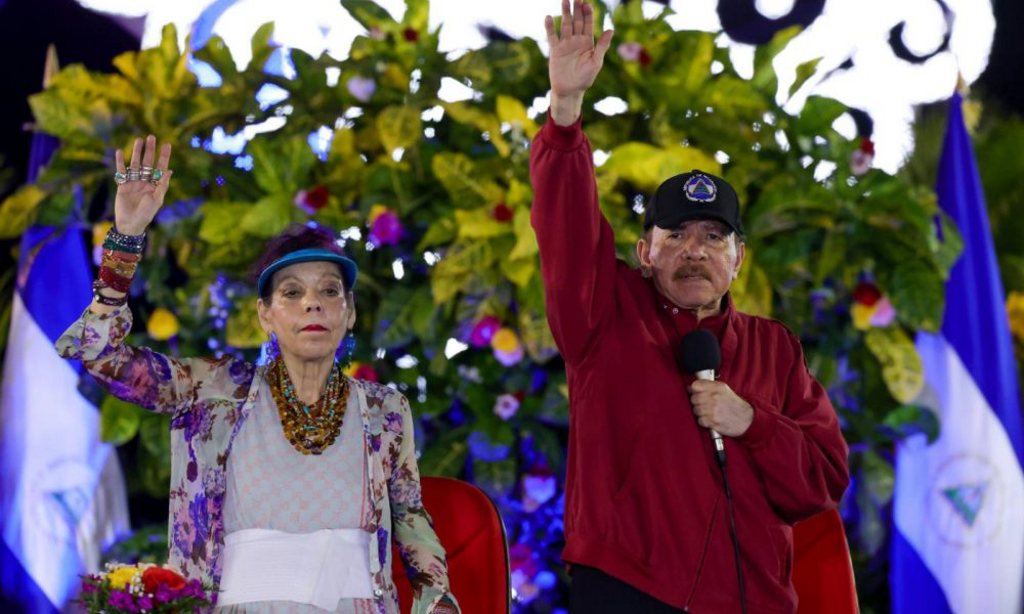Costa Rica Caught in the 5G Crossfire
In the latest round of global tech chess, China has offered Costa Rica a “Plan B” to operate 5G networks, accusing the United States of strong-arming its allies to keep Chinese technology out of their infrastructure. As the world’s superpowers jockey for position in the 5G race, Costa Rica finds itself in the middle of a high-stakes game. But what does this really mean for Costa Rica, and is it wise to take up China’s offer?
The 5G Race: Why It Matters
Let’s get one thing straight: 5G isn’t just about faster download speeds for your cat videos. It’s about the future of global communications, military technology, and economic power. Whoever controls 5G technology will have a significant advantage in everything from AI to autonomous vehicles. So it’s no wonder the U.S. and China are battling it out over who gets to install 5G networks around the world.
In this context, Costa Rica’s decision on which country to partner with for its 5G infrastructure is more than just a business deal. It’s a geopolitical statement. And China, sensing an opportunity, has stepped in with a backup plan, accusing the U.S. of pressuring its allies to exclude Chinese tech giants like Huawei from their 5G plans.
China’s “Plan B”: What’s on the Table?
So, what exactly is China offering Costa Rica with its so-called “Plan B”? Simply put, China is offering to help Costa Rica build its 5G network using Chinese technology, which likely means Huawei or ZTE equipment. China’s pitch is that its 5G technology is cutting-edge, affordable, and available now—no need to wait around for Western alternatives.
Of course, there’s a catch. Accepting China’s offer means aligning more closely with Beijing, at a time when the U.S. is urging its allies to steer clear of Chinese tech over security concerns. The U.S. argues that allowing Chinese companies to build 5G networks could give Beijing access to critical data, posing a risk to national security. China, predictably, denies these accusations, calling them nothing more than fear-mongering by the U.S.
The U.S. Response: Pressure or Protection?
According to China, the U.S. isn’t just sitting back and letting countries make up their own minds. They accuse the U.S. of “pressuring allies” to reject Chinese technology, citing security risks that Beijing insists are baseless. The U.S., for its part, sees itself as the defender of global security, warning that countries that choose Chinese tech could end up regretting it when their sensitive data isn’t so secure.
But let’s not kid ourselves—this isn’t just about security. It’s about who gets to be the dominant player in the global tech market. The U.S. doesn’t want to see China taking the lead in 5G because whoever wins this race could end up controlling the next generation of the internet, and with it, a whole lot of global influence.
Costa Rica’s Dilemma: A Tough Choice Ahead
Now, where does Costa Rica fit into all this? For a small country with a strong commitment to neutrality, being caught in the middle of a U.S.-China tug-of-war isn’t exactly comfortable. Costa Rica has long prided itself on its diplomatic balance, maintaining good relations with both Washington and Beijing. But when it comes to 5G, sitting on the fence might not be an option.
On one hand, accepting China’s offer could mean getting a 5G network up and running sooner and possibly at a lower cost. On the other hand, aligning with China might strain relations with the U.S., a key partner in trade, security, and development. It’s a classic case of being stuck between a rock and a hard place—or in this case, between two global superpowers.
The Security Concerns: Real or Overblown?
The U.S. has been vocal about the security risks of using Chinese technology in 5G networks, warning that it could give Beijing access to sensitive data. While China dismisses these concerns as unfounded, it’s worth noting that several countries have already banned or restricted the use of Huawei and ZTE equipment in their networks.
But are these fears legitimate? That’s a question Costa Rica’s government will have to answer. Security experts argue that allowing Chinese companies to build critical infrastructure could indeed pose risks, as China’s government has a history of using technology for surveillance and intelligence gathering. However, China insists its technology is safe and that the U.S. is simply trying to limit competition.
The Economic Angle: Weighing the Costs and Benefits
Beyond the security concerns, there’s the economic aspect to consider. Costa Rica could benefit from lower costs and faster implementation by partnering with China. Huawei and ZTE are known for offering competitive prices, which could make a big difference for a developing nation like Costa Rica. Moreover, a speedy rollout of 5G could give Costa Rica an edge in attracting tech companies and boosting its digital economy.
However, the long-term costs of choosing China could be significant. If Costa Rica’s decision leads to strained relations with the U.S., the country could face economic repercussions that outweigh any short-term savings. It’s a delicate balancing act—one that requires careful consideration of both the immediate benefits and the potential long-term risks.
The Bigger Picture: Global Implications of Costa Rica’s Choice
Costa Rica’s decision on whether to accept China’s “Plan B” for 5G could have implications far beyond its borders. If Costa Rica goes with China, it could encourage other countries in the region to follow suit, weakening the U.S.’s position in Latin America. On the other hand, if Costa Rica rejects China’s offer, it would send a clear message that the U.S. is still the dominant influence in the region.
This isn’t just a technical decision about which company builds a network—it’s a strategic choice that could shape the future of Costa Rica’s foreign policy and its role on the global stage.
The Clock is Ticking
As Costa Rica weighs its options, the world is watching. The decision to go with China’s “Plan B” or to heed the U.S.’s warnings will have lasting consequences for the country’s economic, security, and diplomatic future. It’s a choice that will require Costa Rica to carefully balance the immediate benefits of Chinese technology with the long-term implications of aligning too closely with one of the world’s most controversial superpowers.
In the end, Costa Rica’s decision will be a defining moment—one that could set the tone for its international relationships for years to come. The stakes couldn’t be higher, and the clock is ticking.
Source link
Admin



